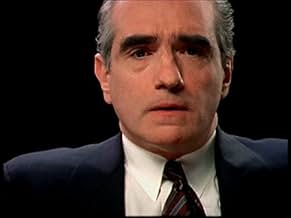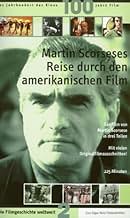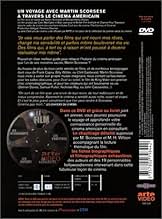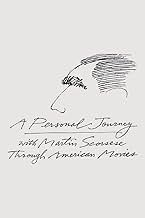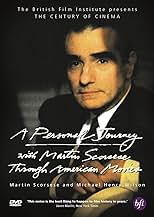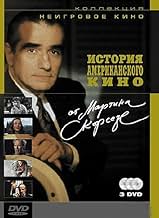Un voyage avec Martin Scorsese à travers le cinéma américain
- Épisode diffusé le 21 mai 1995
- 3h 45min
Ajouter une intrigue dans votre langueMartin Scorsese describes his initial and growing obsession with films from the 1940s and 50s as the art form developed and grew with clips from classics and cult classics.Martin Scorsese describes his initial and growing obsession with films from the 1940s and 50s as the art form developed and grew with clips from classics and cult classics.Martin Scorsese describes his initial and growing obsession with films from the 1940s and 50s as the art form developed and grew with clips from classics and cult classics.
- Récompenses
- 1 nomination au total
- Récitant
- (voix)
- …
- Manny Davis, 'The Sweet Smell of Success'
- (images d'archives)
- (non crédité)
- Alonzo Smith, 'Meet Me in St. Louis'
- (images d'archives)
- (non crédité)
- Zachary Evans, 'Silver Lode'
- (images d'archives)
- (non crédité)
- Peripetchikoff, 'One, Two, Three'
- (images d'archives)
- (non crédité)
- Tony Hunter, 'The Band Wagon'
- (images d'archives)
- (non crédité)
Histoire
Le saviez-vous
- AnecdotesThe machine gun spray that comes close to hitting James Cagney as he and Edward Woods turn the corner are real bullets fired by a real machine gun.
- Citations
Martin Scorsese - Narrator: Actually when I was a little younger,there was another journey I wanted to make, It was a relgious one. I wanted to be a priest. However, I soon realized that my real vocation, my real calling, was the movies. I don't really see a conflit between the church and movies - the sacred and the profane. Obviously there are many differences, but I also could see great similarities bwtween a church and a movie house. Both are places for people to come together and share a common experience. and I believe there's spirituality in films even if it's not one which can supplant faith.
He shows us how the old studio system in Hollywood was, though oppressive, the way in which film directors found themselves progressing the medium because of how they were bound by political and financial limitations. During his clips from the movies he shows us, we not only discover films we've never seen before that pique our interest but we also are made to see what he sees. He evaluate his stylistic sensibilities along with the directors of the sequences themselves.
The idea of a film canon has been reputed as snobbish, hence some movie fans and critics favor to just make "lists." However, canon merely denotes "the best" and supporters of film canon argue that it is a valuable activity to identify and experience a select compilation of the "best" films, a lot like a greatest hits tape, if just as a beginning direction for film students. All in all, one's experience has shown that all writing about film, including reviews, function to construct a film canon. Some film canons can definitely be elitist, but others can be "populist." As an example, the Internet Movie Database's Top 250 Movies list includes many films included on several "elitist" film canons but also features recent Hollywood blockbusters at which many film "elitists" scoff, like The Dark Knight, which presently mingles in the top ten amidst the first two Godfather films, Schindler's List and One Flew Over the Cuckoo's Nest, and the fluctuation of similar productions further down such as Iron Man, Sin City, Die Hard, The Terminator and Kill Bill: Vol. 2. Writer Scorsese's Taxi Driver Paul Schrader has straightforwardly referred to his canon as "elitist" and contends that this is positive.
Scorsese is never particularly vocal at all about his social and political ideologies, but when we see this intense and admittedly obsessive history lesson on the birth and growth of American cinema in both ideological realms, we see that there is really no particular virtue in either elitism or populism. Elitism concentrates all attention, recognition and thus power on those deemed outstanding. That discrimination could easily lead to self-indulgence much in the vein of the condescending work of Jean-Luc Godard or the overrationalization of the production practices of a filmmaker like Michael Haneke. Yet populism invokes a belief of representative freedom as being only the assertion of the people's will. As has been previously asserted about the all-encompassing misconceptions the people have about cinema, populism could be the end of the potential power and impact of cinema. One can only continue seeing films, because it is a vital social and metaphysical practice. And that's what Martin Scorsese spends nearly four hours here trying to tell us, something which can't be told without being seen first-hand.
Meilleurs choix
Détails
- Date de sortie
- Pays d’origine
- Site officiel
- Langue
- Aussi connu sous le nom de
- Un viaje personal con Martin Scorsese a través del cine americano
- Sociétés de production
- Voir plus de crédits d'entreprise sur IMDbPro
- Durée3 heures 45 minutes
- Couleur
- Mixage
Contribuer à cette page


